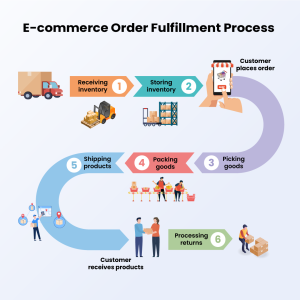Finding the right care for a senior family member is an important and often challenging decision. Assisted living is one of the most popular options for older adults who need some support with daily activities but still wish to maintain independence. With a variety of facilities, levels of care, and lifestyle options available, understanding the different assisted living options is crucial for families seeking to make informed decisions. Memory Care Goose Creek explains the types of assisted living, services offered, factors to consider, and practical steps to finding the perfect care for your loved ones.

Understanding Assisted Living
Assisted living provides a supportive environment for seniors who require help with daily tasks such as bathing, dressing, medication management, and meal preparation. Unlike nursing homes, which are designed for individuals with significant medical needs, assisted living focuses on promoting independence while ensuring safety and comfort. Residents typically live in private or semi-private apartments or suites, enjoy communal dining, and have access to recreational and social activities. The goal is to balance autonomy with the assistance necessary to maintain a high quality of life.
Assisted living is ideal for seniors who may have mobility challenges, mild cognitive decline, or difficulty managing household responsibilities independently. Facilities are designed to provide the appropriate level of care while encouraging residents to stay active, socially engaged, and involved in their daily routines.
Types of Assisted Living Options
There is no one-size-fits-all approach to assisted living. Facilities vary in size, services, level of care, and amenities. Understanding the different options can help families match a senior’s needs and preferences with the right environment. Some common assisted living types include:
- Standard Assisted Living – Provides basic support for daily activities and medication management. Residents have access to communal meals, housekeeping, and social programs.
- Memory Care Units – Designed for seniors with Alzheimer’s or other forms of dementia. Memory care focuses on structured routines, cognitive stimulation, and secure environments to prevent wandering.
- Continuing Care Communities – Offer multiple levels of care within the same facility, including independent living, assisted living, and nursing care. This allows residents to age in place without needing to relocate as care needs increase.
- Specialized Care Programs – Some facilities provide programs tailored to specific medical conditions or rehabilitation needs, including post-surgery care, chronic disease management, or physical therapy support.
By understanding the differences between these options, families can identify the type of facility that best meets their loved one’s current and future care needs.
Evaluating Services and Amenities
While daily care is the core of assisted living, additional services and amenities can greatly enhance the quality of life for residents. When evaluating facilities, families should consider services such as:
- Personal care assistance (bathing, dressing, grooming)
- Medication management and health monitoring
- Nutritious meal planning and preparation
- Housekeeping and laundry services
- Transportation for appointments, shopping, and social outings
- Fitness and wellness programs
- Recreational and social activities
Facilities that offer a broad range of services enable residents to maintain independence while staying active and engaged. Amenities such as gardens, walking paths, lounges, and activity rooms contribute to a vibrant and fulfilling lifestyle.
Staff Qualifications and Support
The quality of staff is one of the most important factors in selecting an assisted living facility. Families should evaluate staff training, experience, and resident-to-staff ratios. Facilities with well-trained, compassionate staff and sufficient staffing levels ensure that residents receive timely attention and individualized care.
When visiting potential facilities, observing staff interactions with residents can provide insight into professionalism, responsiveness, and overall quality of care. A supportive and empathetic staff contributes to a positive environment where seniors feel safe, valued, and respected.
Location and Accessibility
Location is a practical and emotional consideration for families. Proximity to loved ones allows for regular visits and emotional support. At the same time, access to healthcare providers, recreational facilities, and community resources is essential for convenience and quality of life.
The neighborhood and facility design should be safe and accessible, with features such as wheelchair ramps, wide corridors, well-lit walkways, and emergency response systems. Accessibility and convenience support residents’ independence while ensuring safety.
Safety and Emergency Preparedness
Safety is a top priority in assisted living facilities. Families should inquire about emergency response protocols, 24/7 staff availability, and measures to prevent accidents such as falls or wandering. Secure entrances, non-slip flooring, handrails, and clearly marked exits contribute to a safe environment.
Facilities that prioritize safety while encouraging independence create a supportive atmosphere that protects residents while allowing them to live confidently.
Cost Considerations
The cost of assisted living varies based on location, level of care, living space, and amenities. Understanding the pricing structure and what is included is crucial for budgeting. Some facilities charge a flat monthly rate, while others have itemized fees for services such as transportation, therapy, or special care programs.
Families should also explore financial options, including long-term care insurance, veterans’ benefits, or state and federal assistance programs. Comparing costs alongside services ensures families can select a facility that meets care needs while remaining financially sustainable.
Social and Recreational Opportunities
Maintaining an active social life is essential for seniors’ physical and emotional well-being. Assisted living facilities typically offer a range of activities, including fitness classes, hobby groups, educational programs, cultural events, and communal dining.
Social engagement combats isolation, promotes mental stimulation, and enhances overall happiness. When evaluating facilities, families should ask about the variety and frequency of recreational programs and observe how residents participate and interact with one another.
Personalized Care and Individual Plans
One of the advantages of assisted living is the ability to provide personalized care plans. Each resident may have unique needs related to mobility, health, memory, or lifestyle preferences. Facilities should develop individualized plans that adjust over time as residents’ requirements change.
This personalization ensures that seniors receive the support they need while retaining as much independence as possible. Regular reviews and updates to care plans keep residents’ evolving needs at the center of their living experience.
Involving Seniors in the Decision
Whenever possible, involve the senior in choosing their assisted living facility. Their comfort, preferences, and lifestyle choices are essential for a smooth transition and long-term satisfaction. Discussions should include living arrangements, amenities, activities, and the type of care available. Seniors who feel heard and included in the decision-making process are more likely to adjust positively to the new environment.
Visiting and Evaluating Facilities
Visiting potential assisted living facilities is one of the most effective ways to make an informed choice. During tours, families should observe daily routines, cleanliness, social interactions, and staff responsiveness. Speaking with current residents and their families can provide insights into the facility’s culture, quality of care, and overall environment.
Virtual tours may provide an initial overview, but in-person visits allow for a firsthand assessment of the community and help families compare multiple options effectively.
Signs That Assisted Living May Be Appropriate
Families may consider assisted living when seniors experience difficulty performing daily activities independently, managing medications, or maintaining their home safely. Common indicators include:
- Challenges with personal care, such as bathing, dressing, or grooming.
- Difficulty managing medications or health routines.
- Social isolation or decreased engagement in activities.
- Mobility challenges or increased risk of falls.
- Difficulty maintaining a clean and safe living environment.
- Memory challenges that require supervision or cognitive support.
Recognizing these signs early allows families to plan and select a facility that meets both current and future needs.
Steps to Finding the Perfect Assisted Living Facility
To simplify the process, families can follow these steps:
- Assess Needs – Determine the level of assistance required for daily living, health management, and cognitive support.
- Research Options – Identify facilities that match care requirements, preferred locations, and budget.
- Tour Facilities – Visit multiple options to evaluate staff, environment, amenities, and overall atmosphere.
- Compare Costs and Services – Review pricing structures, included services, and potential additional fees.
- Review Policies and Contracts – Understand admission requirements, care protocols, emergency procedures, and resident rights.
- Gather Feedback – Speak with current residents and their families to gain insight into experiences and satisfaction.
- Involve the Senior – Include the senior in decision-making to ensure comfort, preferences, and satisfaction.
- Finalize the Decision – Choose the facility that best balances care, independence, and quality of life, and plan a smooth transition.
Assisted living provides a supportive, safe, and engaging environment for seniors who require help with daily activities but wish to maintain independence. By understanding the different types of assisted living, evaluating services, amenities, staff qualifications, safety measures, and cost, families can make informed decisions that enhance the well-being of their loved ones.
Visiting facilities, involvaing seniors in the decision-making process, and considering both immediate and future care needs are essential steps in selecting the perfect assisted living facility. The right facility ensures seniors receive personalized care, opportunities for social engagement, and a safe, comfortable environment where they can thrive.
Making this decision thoughtfully and proactively provides peace of mind for families and ensures that seniors can enjoy a fulfilling, secure, and enriching lifestyle.





